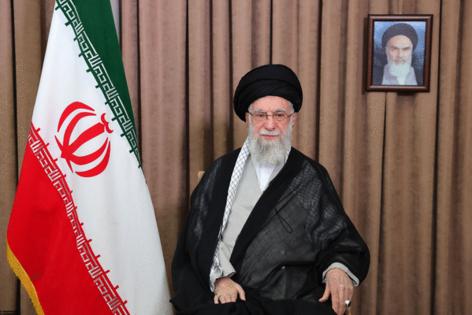Iran's Khamenei says US intervention in war achieved nothing
Published in News & Features
Iran’s Supreme Leader Ayatollah Ali Khamenei claimed victory in the war with Israel and said the U.S.’s intervention achieved nothing, in his first comments since a ceasefire came into effect earlier this week.
“The Islamic Republic emerged victorious and delivered a harsh slap to America’s face” he said in a pre-recorded video message, adding the U.S. “gained no achievements from this war.”
The comments come amid conflicting assessments from Washington about the effectiveness of the U.S. strikes. U.S. President Donald Trump claimed key nuclear sites were “obliterated,” disputing a Pentagon intelligence assessment.
Khamenei hasn’t appeared in public since the start of the war on June 13, when Israel launched surprise attacks on nuclear and military targets across Iran. In a frenetic 12-day period, several Iranian military leaders and scientists were killed, the U.S. joined Israel with strikes on Iran’s nuclear sites and Tehran targeted a U.S. base in Qatar.
A truce was eventually announced by Trump on Tuesday and has broadly held since — despite early violations threatening to unwind it.
“Should any aggression occur, the enemy will definitely pay a heavy price,” Khamenei said, warning Iran could repeat its attack on U.S. bases in the region in future.
Nuclear standoff
In Tehran, lawmakers have been focused on curtailing Iran’s cooperation with the United Nations nuclear watchdog, the International Atomic Energy Agency.
Both Iran’s parliament and the country’s powerful Guardian Council — an unelected chamber responsible for vetting legislation — have approved a proposed bill that suspends Tehran’s cooperation with the IAEA.
Iranian officials have heavily condemned the IAEA for violating its own rules on neutrality. They’ve also accused the agency of providing Israel with a pretext to launch its attacks on Iran.
If the bill comes into effect — it’s likely to still require further approval by the Supreme National Security Council — Iran will be violating the terms of its agreements with the IAEA. The Islamic Republic can only legally end cooperation with the agency if it formally withdraws from the nuclear non-proliferation treaty.
The IAEA has been unable to conduct inspections in Iran since the start of the conflict, and has said it needs to confirm the whereabouts of Tehran’s stockpile of highly enriched uranium.
©2025 Bloomberg L.P. Visit bloomberg.com. Distributed by Tribune Content Agency, LLC.







Comments